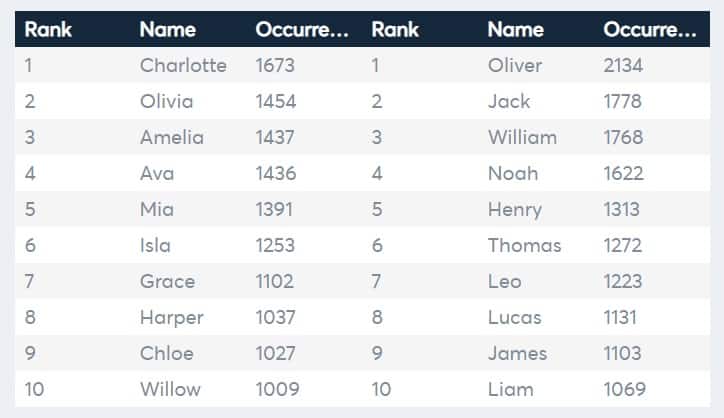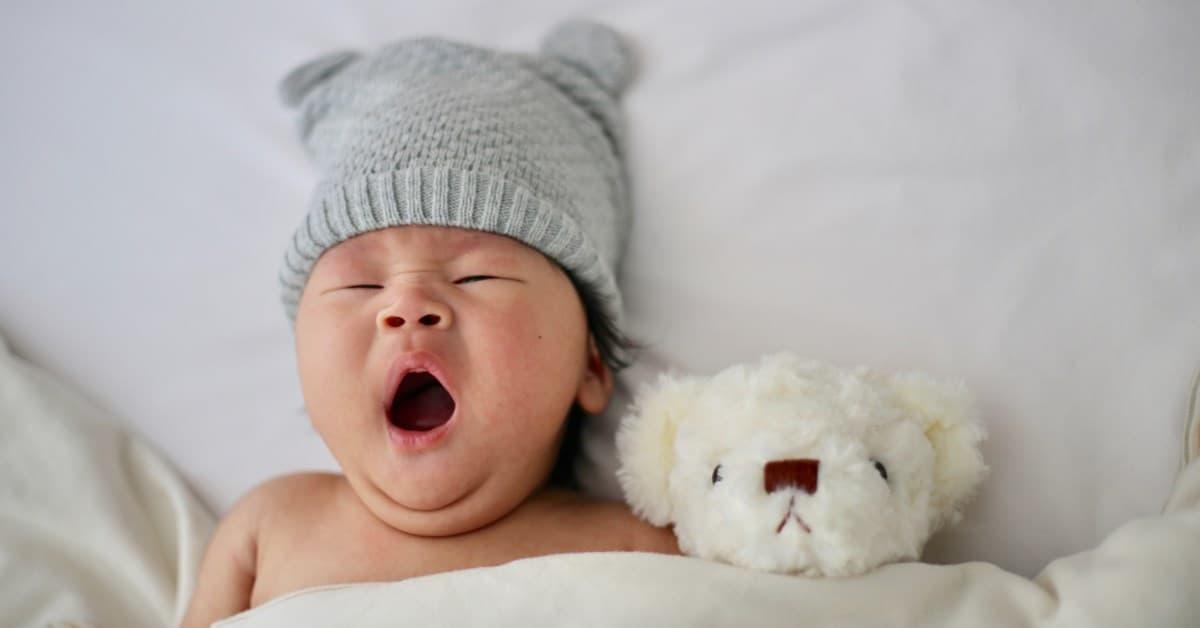By: McCrindle
Each year, the states and territories around Australia reveal the top names given to babies in the previous year.
Analysing baby names at any point in history paints an interesting picture of that era. The Builders generation (born before 1945) chose traditional names such as Peter, Paul, John, Karen, Jennifer or Sharon.
Jump to the 1980s, when the Baby Boomers began to be more creative with their names. This was around the time when baby name books started to emerge.
Today’s parents have more access to information than any other time in history. Parents are inundated with options, research, and meaning, all impacting the names they choose for their children.
A name today is more than what teachers will call you at school. It is your digital real estate in an increasingly technological world.
In 2018, there were just over 300,000 babies born in Australia. Around one in ten Australian newborns were given one of the top ten baby names.
Charlotte and Oliver maintain their reign
Charlotte, the name given to 1,673 Australian baby girls in 2018, has been crowned the number one baby name since overtaking Olivia in 2015.
Oliver, the name given to 2,134 Australian baby boys in 2018, has enjoyed an uninterrupted six years at the top spot since overtaking Jack in 2013.

Top names in recent decades
Jessica
Jessica was Australia’s most popular girls’ name for 16 years from the mid-1980s to the early 2000s. In the mid-1990s, approximately one in every 30 girls born in Australia was named Jessica.
Less than 20 years after it was at number one, Jessica did not even make it into the top 100 in 2018.
Joshua
From the mid-1990s until 2003, Joshua was the most popular boys’ name in Australia.
Not since the dominance of David in the 1960’s or Michael in the 1970s has a boy name had such a popular run. However, since then, the popularity of Joshua has been consistently falling. In 2018, Joshua was ranked at 34th.
The royal influence
The British Royal Family continue to capture the hearts of Australians. From the moment Kate Middleton stepped out of the carriage on her wedding day onto the steps of Westminster Abbey, the ‘Kate Effect’ was born.
Beyond Kate, the extended royal family is not just influencing the fashion and hairstyle choices of modern Australians, but also their choice of baby names.
Prince George (born 2013) and Princess Charlotte (born 2015) have significantly contributed to the popularity of these names.
In the five years since Prince George was born, George’s rank in the baby name list jumped 37 places. George now sits at 34th position.
When Princess Charlotte was born in 2015, her name overtook Olivia as the most popular baby name, it has remained undefeated to this day.
Unsurprisingly, since the birth of Prince Louis in 2018, his name has gained a boost in popularity. Louis has jumped 14 places since 2017, now at 59th position.
Parents opting for uniqueness
Compared to previous decades, parents in the 2010s have been opting for more creative choices for their children’s name.
This is evident when looking back just one generation when the first-time mothers of today (average 31 years old) were born.
In 1987, 22% of babies born in NSW were given one of the top 10 baby names. Today, just 10% of babies were given one of the top 10 baby names. This is more significant when considering there were over 5,000 more babies born in NSW in 2018 compared to 1987, yet fewer occurrences of the top 10 names.
When looking back another 30 years, in 1957, 30% of babies born in NSW were given one of the top ten baby names. This means, just over sixty years ago, there were almost 12,000 fewer babies born annually in NSW, but parents were three times more likely to give their baby a name in the top 10.

Download the report
For more insights, and to see the top 100 list of baby names, download the 2019 McCrindle Australian Baby Names Report here.
Article supplied with thanks to McCrindle.
About the Author: McCrindle are a team of researchers and communications specialists who discover insights, and tell the story of Australians – what we do, and who we are.

